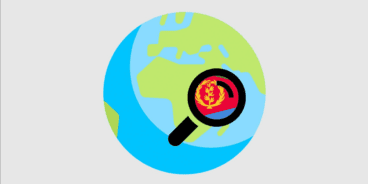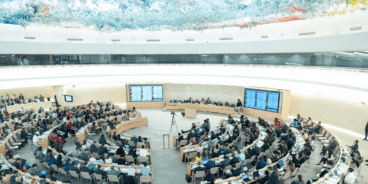
Joint NGO Letter: Ensure continued scrutiny of the human rights situation in Eritrea
To Permanent Representatives of Member and Observer States of the United Nations Human Rights Council
Excellency,
We, the undersigned human rights organizations, are writing to urge you to support the adoption of a resolution at the upcoming 41st session of the UN Human Rights Council (“Council”) to maintain a monitoring and reporting mandate on the human rights situation in Eritrea. The human rights situation in Eritrea remains dire, notwithstanding recent developments, including the Eritrea-Ethiopia Summit, the reopening of the border between the two countries, and the signing of a tripartite agreement between Ethiopia, Eritrea, and Somalia.
A free and independent press continues to be absent from the country and 16 journalists remain in detention without trial, many since 2001. Eritrean authorities are yet to produce evidence that those arbitrarily jailed are alive. Throughout the country, authorities have restricted and suppressed civic space. At the Council’s 40th session in March 2019, the UN Deputy High Commissioner for Human Rights highlighted impunity for past and ongoing human rights violations, including arbitrary arrests and incommunicado detention, violations of the right to a fair trial, lack of information on the fate and whereabouts of disappeared persons, lack of access to justice, lack of enforcement of the 1997 Constitution, the imposition of severe restrictions to the enjoyment of human rights, including the rights to freedom of expression, peaceful assembly and association, and religion or belief, and the continued use of indefinite national service involving torture, sexual violence and forced labour. She stressed: “[A]s far as [the Office of the UN High Commissioner for Human Rights, OHCHR] is aware, the actual human rights situation for the people of Eritrea has not improved in the past year.” Ongoing severe violations, including their gendered impact and generalised impunity, call for a high level of monitoring and public reporting.
This is the wrong time for the Council to relax scrutiny of the situation in Eritrea. In its resolution 38/15, adopted by consensus in July 2018, the Council invited the Special Rapporteur to “assess and report on the situation of human rights and the engagement and cooperation of the Government of Eritrea with the Human Rights Council and its mechanisms, as well as with the Office of the High Commissioner, and, where feasible, to develop benchmarks for progress in improving the situation of human rights and a time-bound plan of action for their implementation.”
The Special Rapporteur will present her report on reform benchmarks at the upcoming Council session. These provisions, which offer a constructive way forward, outline an expectation of continued attention to, and engagement with, the country. The Council should now ensure adequate follow-up. Failure to do so would doubtless be interpreted by Eritrea as an endorsement of the status quo, further entrenching systemic rights violations. Discontinuation of the mandate should only occur when and if these benchmarks are met and there is demonstrable and concrete progress in the promotion, protection and realisation of human rights.
As a newly-elected member of the Council, Eritrea has an obligation to “uphold the highest standards in the promotion and protection of human rights” and to “fully cooperate with the Council” (UN General Assembly resolution 60/251). Eritrea has not adhered to its membership obligations and has neither invited the Special Rapporteur nor accepted her request to visit the country. Eritrea is one of only 22 countries that have never received a country visit from any Special Procedure, despite requests
from numerous mandate-holders.
Obstructionist behavior should not be rewarded. Eritrea’s membership in the Council should be fully leveraged for improvements in the country’s human rights situation and cooperation with the Council and its mechanisms. The Council should urge Eritrea to change course and engage with the UN human rights system.
At its 41st session, the Council should make clear that membership does not prevent, but rather triggers an enhanced responsibility to accept, scrutiny. It should adopt a resolution maintaining a Special Procedure mandate and a high level of monitoring and public reporting, to ensure that the grave and systemic human rights violations identified by OHCHR and the Council’s own mechanisms are addressed and accountability for these violations is achieved.
We thank you for your attention to these pressing issues and stand ready to provide your delegation with further information.
Sincerely,
- AfricanDefenders (the Pan-African Human Rights Defenders Network)
- Amnesty International
- ARTICLE 19
- Cairo Institute for Human Rights Studies
- Center for Reproductive Rights
- CIVICUS
- Civil Rights Defenders
- Committee to Protect Journalists
- CSW (Christian Solidarity Worldwide)
- DefendDefenders (the East and Horn of Africa Human Rights Defenders Project)
- Eritrea Focus
- Eritrean Diaspora in East Africa (EDEA)
- Eritrean Law Society (ELS)
- Eritrean Movement for Democracy and Human Rights (EMDHR)
- Front Line Defenders
- Geneva for Human Rights / Genève pour les Droits de l’Homme
- Global Centre for the Responsibility to Protect
- Human Rights Concern – Eritrea (HRCE)
- Human Rights Defenders Network – Sierra Leone
- Human Rights Institute of South Africa (HURISA)
- Human Rights Watch
- International Commission of Jurists
- Information Forum for Eritrea (IFE)
- International Refugee Rights Initiative
- International Service for Human Rights
- Network of Eritrean Women (NEW)
- Odhikar, Bangladesh
- Release Eritrea
- Reporters Without Borders
- World Organisation Against Torture (OMCT)
Related Publications


